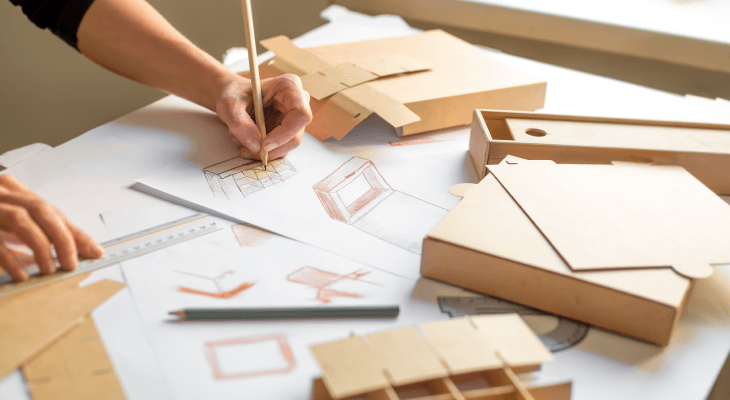6 Alternative Jobs for Architecture Graduates
If being an architect is not your cup of tea, check out these alternative careers that can put your architecture degree to good use.
Updated 10 May 2022

Completing a degree in architecture is no mean feat — 4 years of study with countless nights working in the studio to complete your design models.
While it’s advisable that you should only embark on this course if you plan to become an architect, it is by no means your only career option once you graduate.
Here are some alternative careers you can consider with an architecture degree.
#1. Construction manager

Architects may be the genius behind the art and science of a building design — but construction managers are the ones responsible for ensuring that a building project is completed safely within a timeframe and budget. Your architectural knowledge will certainly be useful in the field of real estate development and construction.
Construction managers may work in a variety of projects such as residential, commercial, industrial and infrastructure. Their day-to-day tasks involve supervising the labour force, checking materials, inspecting work and overseeing quality control. Essentially, they are the project managers running the show and making sure any unexpected problems that occur on site are dealt with swiftly.
As someone who is responsible for the success of a construction project, you will need to have good financial and time management skills, as well as be able to work with various people from consultants and surveyors to suppliers and contractors. It’s complex work with many moving parts, but for some, it can be a highly rewarding career.
#2. Product designer

Great design doesn’t just come in the form of buildings.
Product design involves creating or improving items ranging from everyday household items and electronics to industrial tools and machinery. The process involves design, modelling, creating a prototype and testing. It’s a field that requires a holistic approach to ensure products are functional and well-designed — but that doesn’t mean you can’t put a little spin on it.
From futuristically designed lamps made entirely out of recycled cardboard boxes, brands like Graypants, founded by architects turned designers, have taken product design to a whole new level. If you’re interested in creating new products and bringing them to the next level, a career in product design may be great for you.

#3. Fashion designer

Did you know that almost everything we put on is perfectly designed and constructed to be both functional and aesthetically pleasing? Design using textiles requires an understanding of colour, construction, patterns, forms and tactility, all of which are developed in architecture school.
High fashion is one of the ways architecture is taken to a different level where designers incorporate exaggerated proportions and swooping symmetrical designs to create a 3-dimensional look. This architecture fashion can be seen on garments we have today such as pleating, folding and layering.
Renowned fashion designer Tom Ford is one of the few designers who utilised their architecture degree to produce avant-garde designs, while others have found inspiration in the bustling concrete jungle and contemporary shapes.
Apply for university with EduAdvisor
Secure scholarships and more when you apply to any of our 100+ partner universities.
Start now#4. Set designer

Do you ever wonder how movies can come up with unique and amazing sets such as that rotating hallway scene in Inception? What about the asymmetrical and elegant Pepto-Bismol landscape in The Grand Budapest Hotel? While you may think they were done through CGI, it was actually the wonders of set designers who put them together!
Set designers are essentially the concept artists behind films, TV shows and theatre. They map out floor plans, drawings and miniature 3-dimensional models of the set to make sure everyone involved in the production understands the process — all of this from just reading the script! Thereafter, they work with a construction team as well as the props and lighting teams to make the set a reality.
If you feel like designing buildings restrict your wild and crazy ideas, join the whimsical and innovative world of set designing where you are able to express your adventurous ideas. Who knows, you might just be the next set designer for the next Star Wars sequel!
#5. Graphic designer

Architects are no strangers to creating intricate and detailed designs. With an architecture degree and a keen eye for design, you can easily transition to the world of graphic design.
A graphic designer’s role involves creating a myriad of eye-catching visuals for websites, social media, magazines, product packaging and print banners, just to name a few. Your tasks may include developing design briefs that fit the client’s objectives and presenting ideas, concepts and finalised designs.
The field can be challenging as you’ll be working with various types of people. Additionally, what is deemed as “good design” is often subjective, so you’ll need to balance your ideas with what the client envisions. Nonetheless, the work can be highly rewarding when you see your designs come to life.

#6. Educator

If you’re fascinated by concepts, theory and the history of architecture, and you’re excited to impart your knowledge to the world, you can always plunge into the world of academia.
As a professor in architecture, you’ll be primarily engaged in teaching, working on tasks such as planning the curriculum, delivering lectures and evaluating students’ work and design models. Some architecture professors are also involved in research.
Despite the bad rap educators sometimes receive, teaching is a great privilege and honour, and it’s the perfect way to shape and inspire the next generation of architects. You’ll also have more flexible hours compared to working in an architecture firm.
We hope this has helped you gain some inspiration on what you can do with an architecture degree. Again, you don’t have to be limited to a career as an architect. There are plenty of ways you can put what you’ve learnt into good use. All the best!






